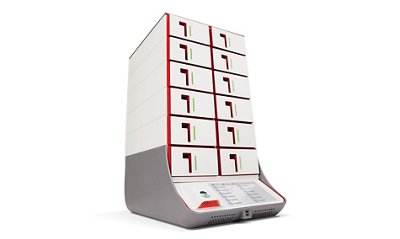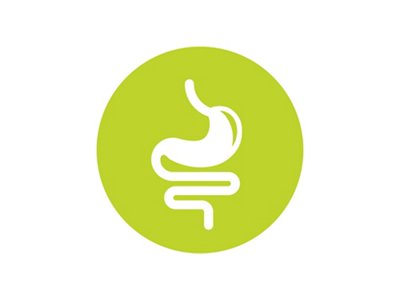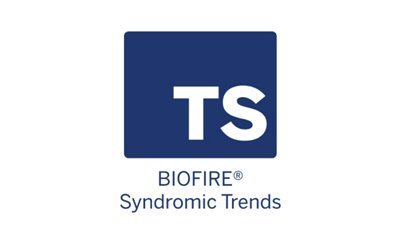BIOFIRE® FILMARRAY® Tropical Fever (TF) Panel
1 Test. 6 Targets. ~50 Minutes.
The BIOFIRE® FILMARRAY® Tropical Fever (TF) Panel tests for a syndromic grouping of 6 bacteria, viruses and parasites most often associated with tropical fever infections. With just one test, results are available in ~50 minutes.
Disclaimer: Product availability varies by country. Please consult your local bioMérieux representative for product availability in your country.
- Overview
- Panel Menu
- Services & Support
- Specs & Resources
Overview
Syndromic Infectious Disease Testing for Tropical Fever Diseases
Defined as infections that are prevalent in or unique to tropical and subtropical regions, tropical fever infections often present with overlapping, non-specific signs and symptoms, making them challenging to diagnose. Their prevalence is expected to rise around the world as the impact of global climate change leads to conditions favorable to the spread of these diseases.1
The BIOFIRE® FILMARRAY® Tropical Fever (TF) Panel simultaneously tests for 6 target pathogens in about 50 minutes using a single test. It is designed for use on the BIOFIRE® FILMARRAY® TORCH System, an FDA-cleared, CE-IVD, and TGA certified multiplex PCR system that integrates sample preparation, amplification, detection, and analysis.
Fast and Accurate
Current testing for tropical fever pathogens can take several days to diagnose, often requiring multiple samples and a variety of different methods. BIOFIRE FILMARRAY TF Panel makes all that a thing of the past!
- Simple: ~ 2 minutes hands-on time with a single test
- Fast: Detect 6 target viruses, bacteria and parasites that cause tropical fever diseases in about 50 minutes
- Accurate: 95.1% Sensitivity and 99.8% Specificity 2
Challenges of tropical fever infections
Malaria, Chikungunya, Dengue and Leptospirosis affect 100+ countries and are estimated to cause more than 300 million infections per year resulting in more than 600,000 deaths.3, 4, 5, 6
Symptoms of tropical fever infections are often non-specific and overlapping, making it difficult to differentiate them from each other, and to distinguish mild-self-limiting illness from more severe diseases needing prompt and targeted treatment.
The BIOFIRE FILMARRAY TF Panel is designed to address diagnostic challenges, including:
- Lack of testing standardization for specimen type and preparation, test media, and methods.7
- Rapid Diagnostic Tests (RDTs) can lack the sensitivity and specificity of a molecular test, leading to false negatives and negatively impacting patient outcomes.8
- Blood cultures and microscopy are resource intensive with a turnaround time of over 48 hours.9
- Leptospirosis cannot be easily cultured and might require early administration of an antimicrobial that is not part of the usual empirical treatment.11
- In non-endemic areas, low familiarity with tropical fever infections can lead to slower diagnosis.10
The right test, the first time
It is important to quickly diagnose the causative agent behind tropical fever infections because these pathogens have different diagnostic pathways and treatment regimens.
Molecular syndromic testing with the BIOFIRE FILMARRAY TF Panel cuts through complexities by simultaneously testing 6 target pathogens to provide answers in a clinically actionable timeframe. This may enable faster time to effective therapy and reduction of unnecessary treatment.

Polymicrobial detection
When more than one pathogen is involved in a tropical fever infection, informed treatment decisions are particularly important. In clinical trial data, the BIOFIRE FILMARRAY TF Panel demonstrated improved polymicrobial detections over traditional methods. Overall, 28 (4.3%) of the 657 positive specimens, 28 (4.3%) had multiple analytes detected..12
REFERENCES
1. Liao H, Lyon C, Ying B, Hu T. Climate change, its impact on emerging infectious diseases and new technologies to combat the challenge. Emerg Microbes Infect. 2024;13(1): 2356143.
2. Performance claims are based on DEN200043 (De Novo) Global Fever Panel Clinical Studies (on file at bioMérieux).
3. World Health Organization. World Malaria Report 2024.
4. Bhatt S, Gething P, Brady O, Messina J, Farlow A, Moyes C, et al. The global distribution and burden of dengue. Nature. 2013;496(7446): 504–507.
5. Costa M, Hagan J, Calcagno J, Kane M, Torgerson P, Matinez-Silveira M, et al. Global Morbidity and Mortality of Leptospirosis: A Systematic Review. PLoS Negl Trop Dis. 2015;9(9):e0003898.
6. de Souza W, Ribeiro G, de Lima S, de Jesus R, Moreira F, Whittaker C, et al. Chikungunya: a decade of burden in the Americas. Lancet Reg Health Am. 2024;30:100673.
7. Singhi S, Chaudhary D, Varghese G, Bhalla A, Karthi N, Kalantri S, et al. Tropical fevers: Management guidelines. Indian J Crit Care Med. 2014;18(2): 62–69.
8. Afriyie S, Addison T, Gebre Y, Mutala A, Antwi K, Abbas D, et al. Accuracy of diagnosis among clinical malaria patients: comparing microscopy, RDT and a highly sensitive quantitative PCR looking at the implications for submicroscopic infections. Malar J. 2023;22(1):76.
9. Maze M, Bassat Q, Feasey N, Mandomando I, Musicha P, Crump J. The Epidemiology of Febrile Illness in Sub-Saharan Africa: Implications for Diagnosis and Management. Clin Microbiol Infect. 2018;24:808–14.
10. Pinto G, Senthilkumar K, Rai P, Kabekkodu S, Karunasagar I, Kumar B. Current methods for the diagnosis of leptospirosis: Issues and challenges. J Microbiol Methods. 2022;195:106438.
11. Bottieau E, Clerinx J, Schrooten W, Van den Enden E, Wouters R, Van Esbroeck M, et al. Etiology and outcome of fever after a stay in the tropics. Archives of internal medicine. 2006;166(15):1642–1648.
12. Manabe Y, Betz J, Jackson O, Asoala V, Bazan I, Blair P, et al. Clinical evaluation of the BioFire Global Fever Panel for the identification of malaria, leptospirosis, chikungunya, and dengue from whole blood: a prospective, multicentre, cross-sectional diagnostic accuracy study. Lancet Infect Dis. 2022;22(9):1356–1364.
Services & Support
Customer Support: bioMérieux offers the best available support with dedicated BIOFIRE® technical experts.
Application Specialists: bioMérieux offers dedicated support teams who are available to help set up equipment and troubleshoot any issues.
For assistance: please contact our customer technical support team at biofiresupport@biomerieux.com
Specs & Resources
Technical Specifications
| Sample Handling | Performance Parameters |
|---|---|
Sample Type: whole blood collected in EDTA tubes | Hands-on Time: Approx. 2 minutes |
Sample Volume: 0.2 mL | Run Time: ~ 50 min |
| Product Name | Part Number | Quantity |
|---|---|---|
| BIOFIRE FILMARRAY TF Panel | 424803 | 6 pouch Kit |






